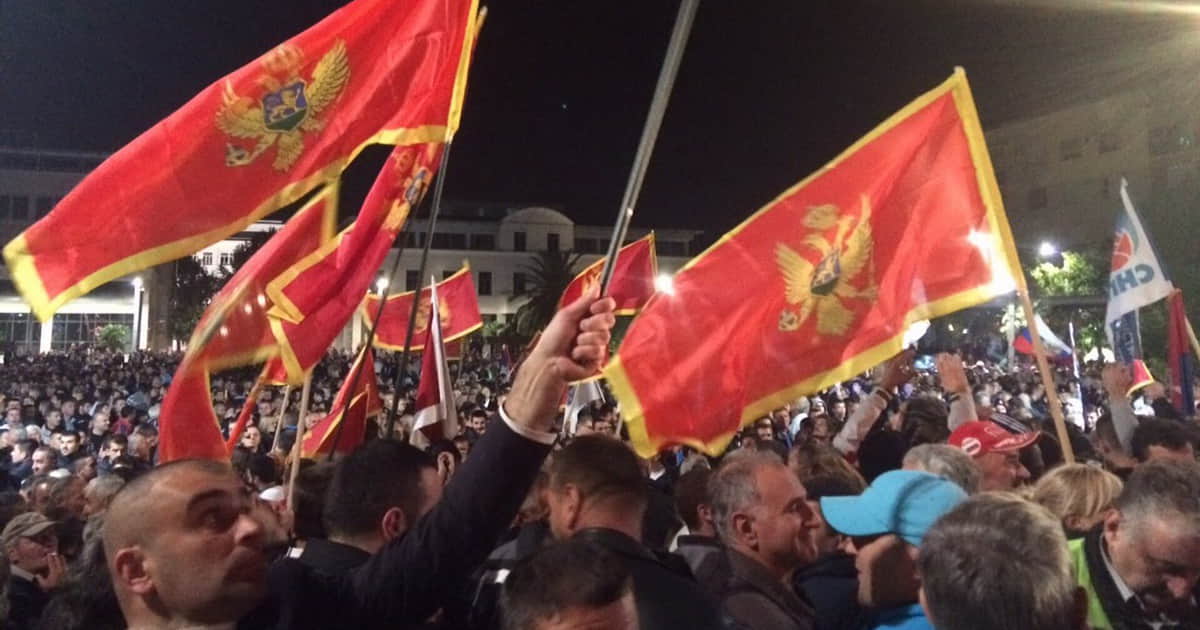How Montenegrins could lose their state

From 1 to 15 November, Montenegro will be conducting a population census. However, the plans for this census have sparked another outbreak of political confrontation in the country. They have even forced the European Parliament to pass a resolution recommending that the census be postponed to a later date to avoid further polarisation of society.
Read more in the article by Natalia Ishchenko, the editor of Balkan Observer, what's wrong with the Montenegrin census and how Montenegrins could become a minority in their own country - Referendum for 'Serbian World': How Montenegrins Could Become a Minority in Their Own Country. The population census is critical for Montenegro's future. An increase in the nominal number of Serbian population is expected to occur mainly through the decrease in the ethnic Montenegrin population, further reinforcing Serbia's influence in Montenegro.
Belgrade, understanding its interests well, has turned the preparations for the census into a massive political technology campaign. Part of this activity has involved direct promotion of Serb identity. Banners with images of prominent Serbian figures bearing the slogan "Ponosni na svoje srpsko" ("Proud of Our Serbian Identity") have been displayed all over Montenegro in recent weeks.
Such direct and extensive promotion of Serbian identity has not been seen before in independent Montenegro. Various Serbian organisations have been conducting cultural and mass events, including concerts, book presentations, and film screenings in different regions of Montenegro. In several Montenegrin cities, the film "Montenegro: Boundary Between Truth and Lies" was premiered, initiated by the Association of Serbs from Montenegro.
The Russian Ambassador to Montenegro, Vladislav Maslenikov, also participated in the presentation. The Serbian Orthodox Church has played a significant role as the top promoter of this propaganda campaign. In mid-October, Patriarch of the Serbian Orthodox Church Porphyry visited Montenegro, calling on the Orthodox faithful in Montenegro to define their identity as faithful to the Serbian Orthodox Church, bearers of the Serbian language.
Of course, as representatives of the Serbian people. In this situation, one may wonder about the stance of Montenegrin authorities. Don't they see the risk?
Unfortunately, at present, only the opposition is against the referendum, especially the former ruling party, the Democratic Party of Socialists (DPS). The preparation campaign for the census in Montenegro has coincided with the formation of a new ruling coalition, which, after the snap elections in June, is expected to appoint the leadership of the parliament and the government. Based on recent agreements, the new majority will be openly pro-Serbian forces, and their representatives have every chance of entering the leadership of the legislative and executive branches.
This coalition, especially with this ending, has stirred political passions in Montenegro. The census has made the atmosphere in Montenegrin politics quite heated. In the end, the EU had to intervene, considering all the circumstances.
Taking everything into account, the European Parliament passed a resolution regarding Montenegro, requesting the postponement of the census to a time when the country emerges from its political impasse. The Montenegrin authorities were unwilling to heed the European parliamentarians. Consequently, the population census in Montenegro is set to proceed as planned from 1 to 15 November.
Opposition parties are calling for a boycott. If the balance shifts towards a larger Serbian population, local political observers expect that Serbs in Montenegro and Belgrade will demand constitutional changes to expand the rights of the Serbian population. Currently, there are two versions of what Serbs might request.
If you notice an error, select the required text and press Ctrl + Enter to report it to the editors.